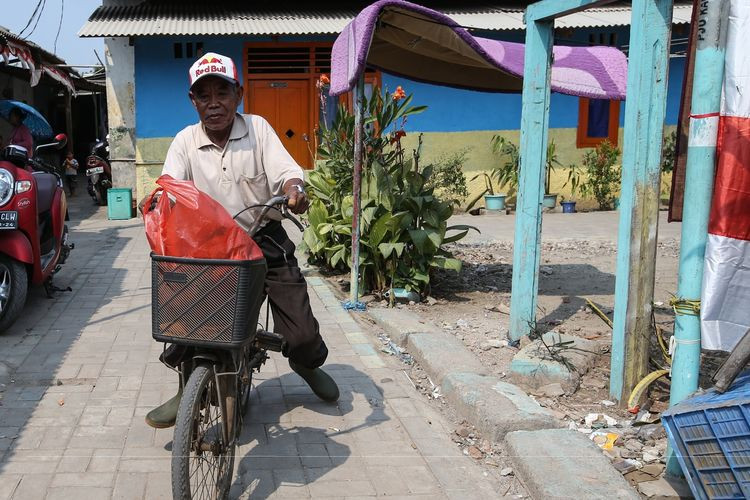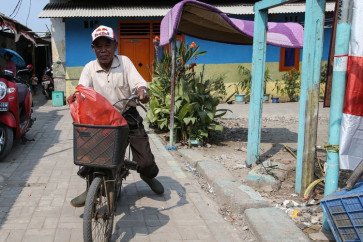Popular Reads
Top Results
Can't find what you're looking for?
View all search resultsPopular Reads
Top Results
Can't find what you're looking for?
View all search resultsStigmatized and ostracized, patients live in Tangerang leper colony
Patients often opt to remain in the leper colony instead of returning to their hometowns for fear of being ostracized in the outside world.
Change text size
Gift Premium Articles
to Anyone
S
tigmatization and discrimination have forced people with leprosy to leave their families or hometowns and settle in a colony in Tangerang, Banten, where the inhabitants support each other.
The leper colony is located in Karangsari, Neglasari, near Sitanala Hospital, which used to specialize solely in treating leprosy, as its outpatients chose to settle in the area rather than return to their hometowns, either for the sake of treatment or to avoid discrimination.
One patient, 35-year-old Hendra, has chosen to live in the colony so that he can undergo treatment at the Sitanala Hospital instead of live with his wife and children in Tegal, Central Java, because he is afraid of being ostracized back in his hometown.
“No one in my village has ever had leprosy, so people there don’t really understand,” Hendra said recently as reported by kompas.com.
Leprosy is a chronic infectious disease that causes skin ulcers and nerve damage.
Although leprosy medication and an early detection program are available for free and can be found in health facilities across the country, many of those with the disease isolate themselves from their community, embarrassed by their condition.
Hendra said that when he was diagnosed with leprosy, his neighbors started avoiding him, although his family did not.


















